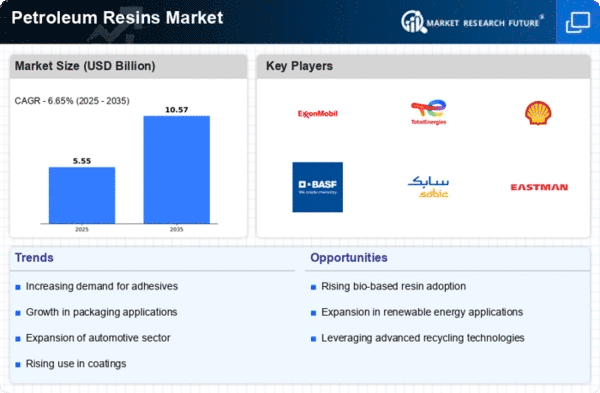Top Industry Leaders in the Petroleum Resins Market

Petroleum Resins Market
-
August 2023- Spero Renewables LLC (Galeta, Calif., U.S.) explains that despite the growing use of epoxy resins, their traditional petroleum-based formulations are not sustainable. This is why it has developed the Sperlu process to produce 100% bio-based epoxy pre-polymers from lignin, which is an abundant and low-cost byproduct of papermaking. Lignin's aromatic chemical structure reportedly provides Sperlu products with thermal and mechanical performance, rivaling petroleum-based alternatives. Spero Renewables reports that Sperlu technology overcomes the traditional challenges with lignin — e.g., brittle nature, low solubility, high viscosity and incompatibility with other polymers — and instead delivers high solubility, reactive and compatible epoxy pre-polymers that enable tunable strength and the ability to achieve up to 80 wt.% renewable content in epoxy resin (epoxy pre-polymer + hardener) using Sperlu epoxy pre-polymers. This performance results from the aromatic structure of Sperlu pre-polymers and their multiple epoxy functions, which provide resins with high strength and stiffness.
In comparison, Spero Renewables says that other renewable sources like epoxidized soybean oil or epoxidized cashew nutshell liquid are generally non-aromatic, with lower strength and stiffness. The lower mechanical properties of these competing epoxy pre-polymers restrict the total renewable content possible in their resulting epoxy resins to about 20 wt.%. The Sperlu process uses a novel catalytic lignin depolymerization process to produce multifunctional phenols (MFPs) with a controlled narrow molecular weight distribution. This enables MFPs to react directly with epichlorohydrin in the same style as in the glycosylation of bisphenol A. However, unlike bisphenol A made from the coupling of phenol or other renewable phenol monomers that need to be modified into multifunctional dimers and oligomers, Sperlu MFPs are reportedly multifunctional by nature, and no coupling modification is needed.
Competitive LandscapeThe most prominent key players in the petroleum resin market in the global market are as follows:• Exxon Mobil Corporation (U.S.)• Eastman Chemical Company (U.S.)• Total Cray Valley (France)• Sojitz Corporation (Japan)• Kolon Industries Inc. (South Korea)• Arakawa Chemical Industries, Ltd (Japan)• ZEON CORPORATION (Japan)• QINGDAO HIGREE CHEMICAL CO., LTD (China)• Puyang Tiancheng Chemical Co., Ltd (China)• Qingdao Reehua Yuanhai Biotech Co., Ltd (China)• Puyang United Chemical Co., Ltd (China)• LESCO CHEMICAL LIMITED (China)• Neville Chemical Company (U.S.)










